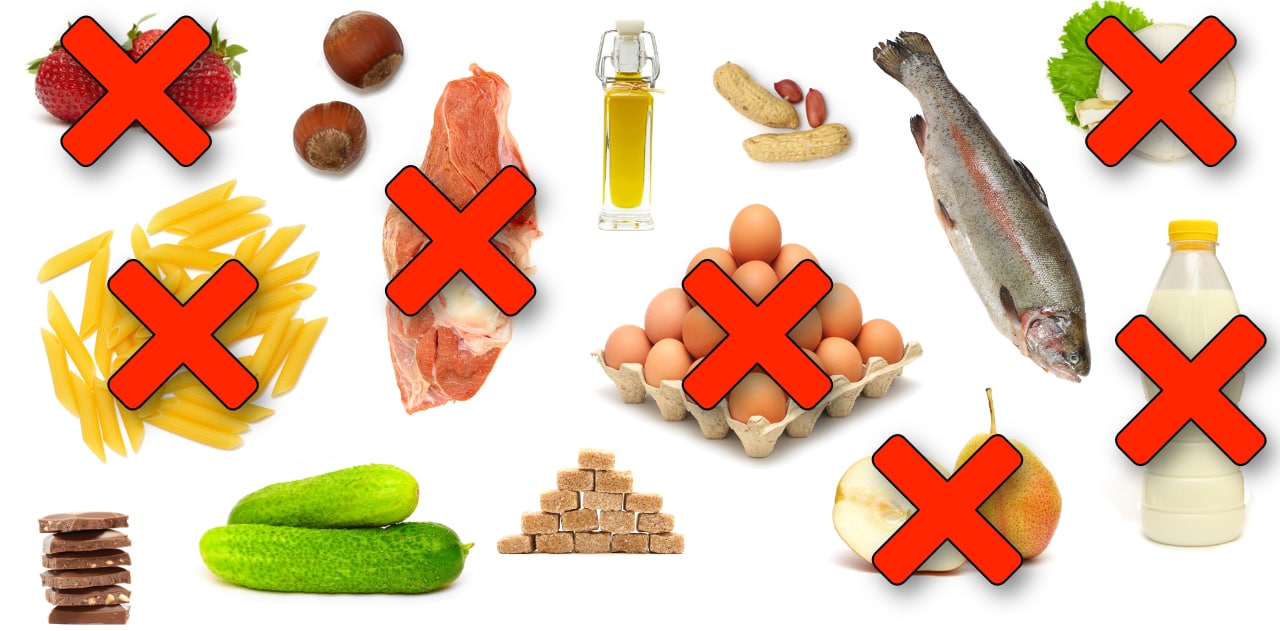When does restricting your diet make sense?
If you suffer from food intolerances, certain constituents of the food may be responsible for a broad variety of symtoms. The obvious conclusion would be to cut all foods from the diet, that contain these constituents. However, such an avoidance strategy also carries risks.

The more one restricts his diet, the higher the risk of malnutrition. Unfortunately, it is very common that staple foods cause problems, therefore, the transition to a well-balanced and trigger free diet is a huge challenge – even with the help of a nutritionist. The good news is that there are hardly any foods that cannot be replaced adequately. Even when you have to avoid staple foods (e.g. wheat or egg) there is now a fair amount of suitable alternatives.
It may take a while until a change in diet begins to take effect. Afters months or even years of digestive problems or chronic inflammation the intestinal flora may be out of balance and it takes a lot of time to fully recover. Celiac disease is a serious disease where even tiny amounts of gluten lead to the destruction of the intestinal villi and it may take several weaks until the intestinal lining has recovered to a point where complaints start to wear off.
There are several diseases where diet is not the only culprit. Symptoms may persist although the supposedly problematic foods have been eliminated from the diet. In a desperate attempt to get health issues under control again many affected people restrict their diet even more – this may lead straight into a vicious circle. The unbalanced nutrition weakens the body and can aggravate the symptoms drastically.
It is important to recognise that diet is only one factor that can influence the course of disease – but it is by no means the only one. Dietary strategies can be an important contributor to the management of food intolerances, but they shouldn't be used without a proper diagnosis. Otherwise, the danger is too high to restrict the diet unnecessarily. If there is no sign of improvement after several weeks, you should consult an health expert to decide on further steps, because the diagnosis may be wrong or incomplete.
Back to blog
Image: ©artmim – Fotolia.com

The more one restricts his diet, the higher the risk of malnutrition. Unfortunately, it is very common that staple foods cause problems, therefore, the transition to a well-balanced and trigger free diet is a huge challenge – even with the help of a nutritionist. The good news is that there are hardly any foods that cannot be replaced adequately. Even when you have to avoid staple foods (e.g. wheat or egg) there is now a fair amount of suitable alternatives.
Restrictive diet is only a temporary solution
It may take a while until a change in diet begins to take effect. Afters months or even years of digestive problems or chronic inflammation the intestinal flora may be out of balance and it takes a lot of time to fully recover. Celiac disease is a serious disease where even tiny amounts of gluten lead to the destruction of the intestinal villi and it may take several weaks until the intestinal lining has recovered to a point where complaints start to wear off.
There are several diseases where diet is not the only culprit. Symptoms may persist although the supposedly problematic foods have been eliminated from the diet. In a desperate attempt to get health issues under control again many affected people restrict their diet even more – this may lead straight into a vicious circle. The unbalanced nutrition weakens the body and can aggravate the symptoms drastically.
Food intolerances: Diet is only one factor
It is important to recognise that diet is only one factor that can influence the course of disease – but it is by no means the only one. Dietary strategies can be an important contributor to the management of food intolerances, but they shouldn't be used without a proper diagnosis. Otherwise, the danger is too high to restrict the diet unnecessarily. If there is no sign of improvement after several weeks, you should consult an health expert to decide on further steps, because the diagnosis may be wrong or incomplete.
Why do we care so much about this topic?
 We have been developing our price-winning "Food Intolerances" app since 2011 and we are happy to share our knowledge with you. Check it out:
We have been developing our price-winning "Food Intolerances" app since 2011 and we are happy to share our knowledge with you. Check it out:
Share article
Share article
Back to blog
Image: ©artmim – Fotolia.com
![[Blog]](../../rw_common/images/baliza_logo_retina.png)

